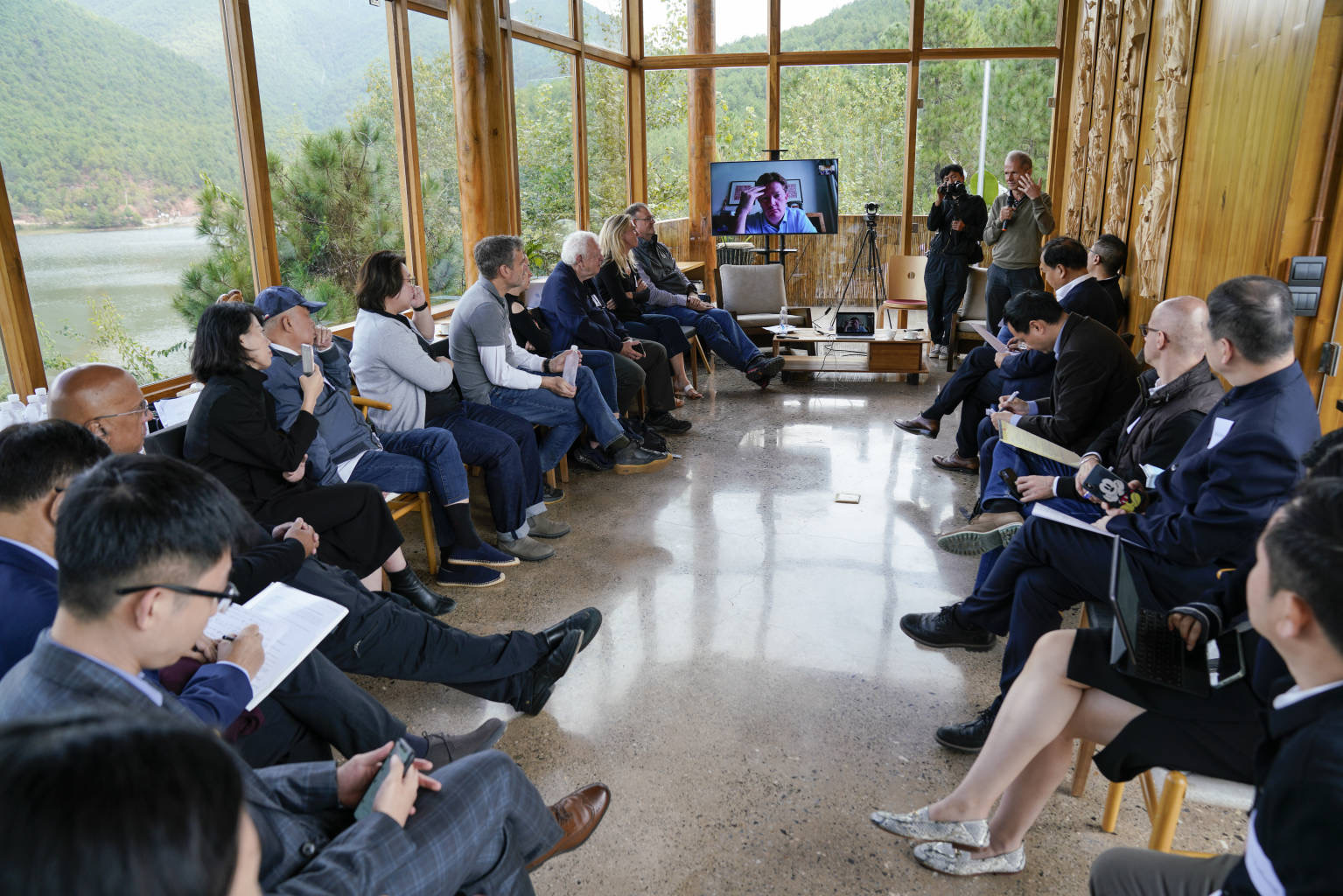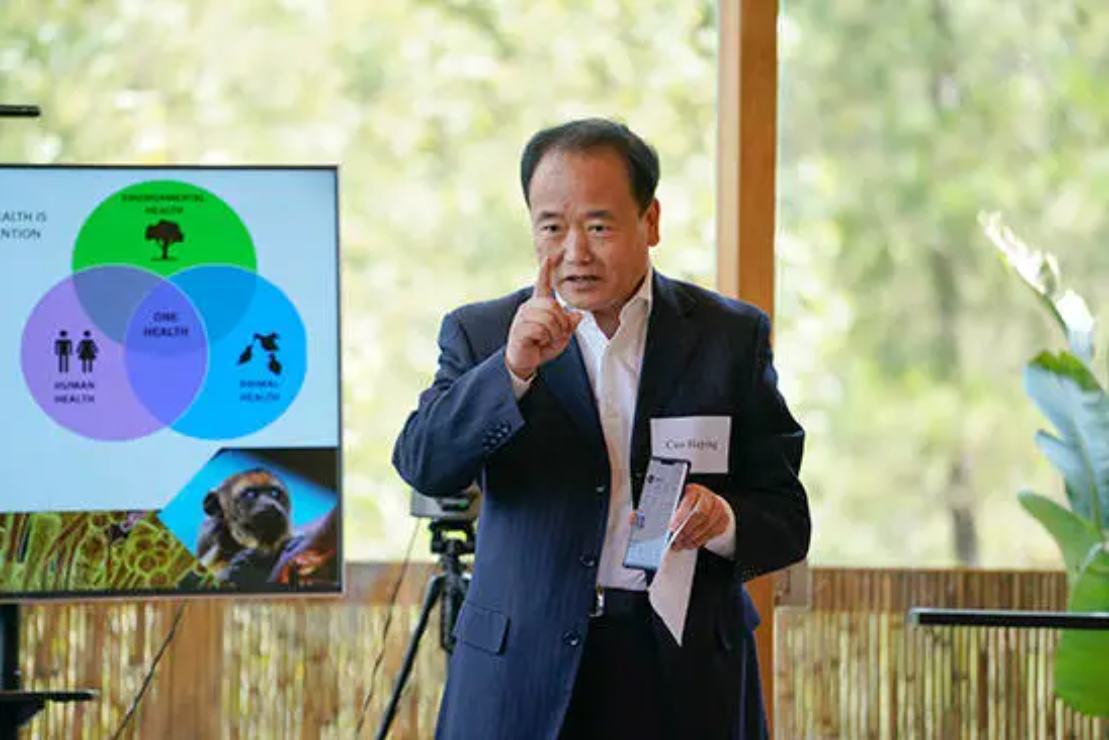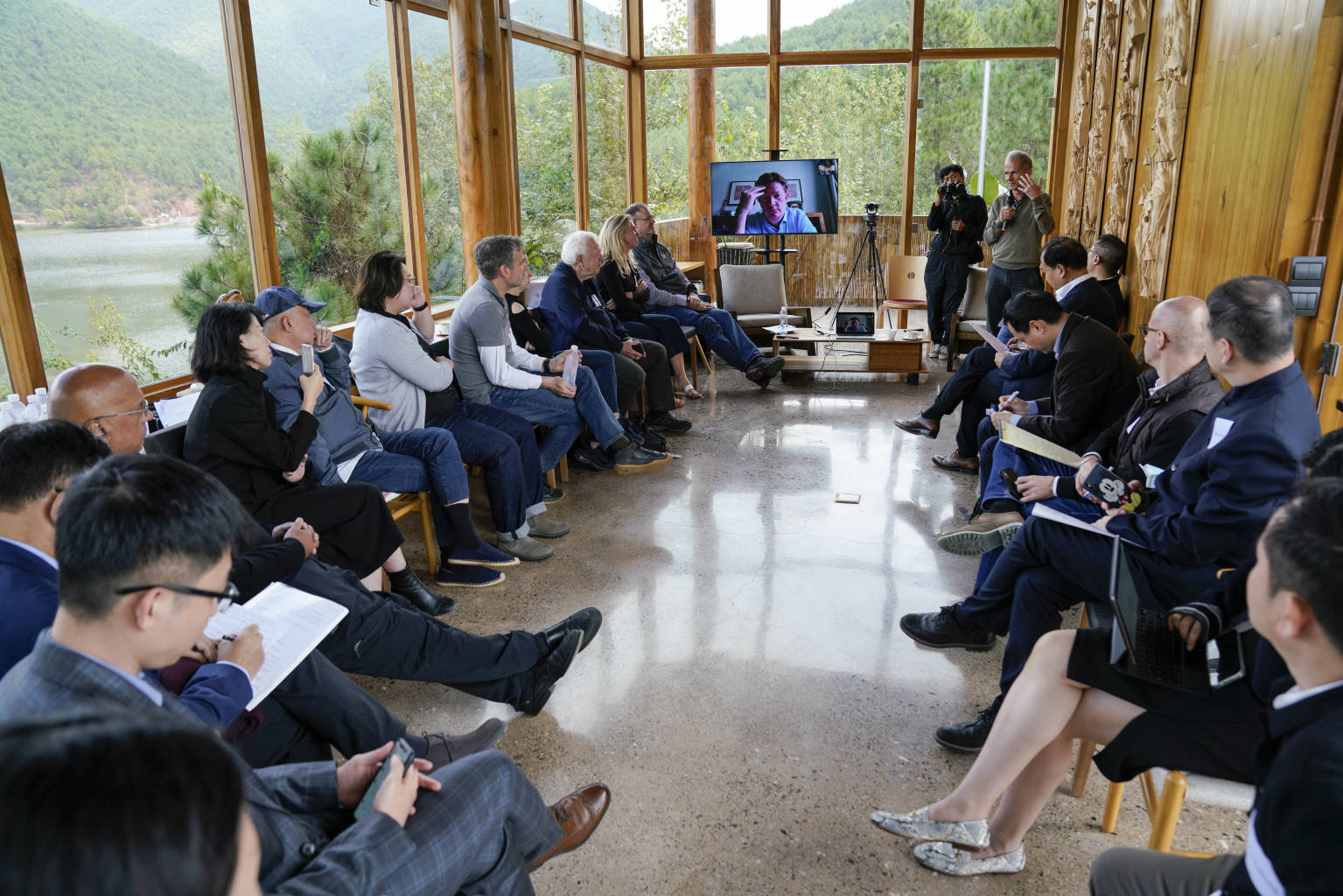On October 9, the 2021 Erhai Forum on Global Ecological Civilization Construction took place in Dali, Yunnan Province, China in the lead-up to COP15. A supporting event of the Erhai Forum, the Workshop on One Planet, Biodiversity and Green Financing was held by the Asian Infrastructure Investment Bank (AIIB) and the China Forum of Tsinghua University’s Center for International Security and Strategy in Shaxi, Yunnan on October 9 and 10. The workshop brought together more than 20 renowned experts in the fields of ecology, environment, public health, and economics to explore innovative financing for sustainable development.

An unprecedented challenge
At the workshop, Terry Townshend, senior advisor to the Paulson Institute’s Conservation program, warned that vertebrate populations have declined by 68 percent in the past five decades and are on the brink of extinction. The most immediate impact of this ecological crisis is zoonotic diseases. According to Abigail Wright, senior health specialist at AIIB, the COVID-19 pandemic has claimed nearly 5 million lives, with a cumulative financial cost of $8 to $16 trillion.
During the pandemic, the concepts of “One Health” and “Planetary Health” have entered the public eye. We have become more aware of the interconnection between people, animals and the environment, as well as the significance of a “healthy planet” and “eco-health,” AIIB Vice President Sir Danny Alexander said.

Ecological civilization
Where, then, should we direct our efforts to achieve the biodiversity goals? Eric Li, Vice President of the China Forum, pointed to “ecological civilization.”
Although COP15 is the first UN conference on the theme of “ecological civilization,” China proposed to “build an ecological civilization” as early as in 2007. It believes that clear water and green mountains are as valuable as mountains of gold and silver, and Mother Earth is to be respected and protected to achieve a harmonious coexistence between human and nature. China’s success in mobilizing and coordinating nation-wide efforts to facilitate development and governance goals has demonstrated the potential of the global advancement of the Aichi Biodiversity Targets.
Furthermore, Dr. ZHOU Jinfeng, Secretary-General of the China Biodiversity Conservation and Green Development Foundation, highlighted the positive changes that China has made to promote ecological civilization.
Green Financing
Professor CAO Heping from Peking University’s School of Economics explained the rationale behind the innovative concept of “green financing”: In this new financial paradigm, the return on investment of ecological capital and public goods in the overlapping generation process is no less than that of industrial, assembly line-style production. As investors find that the opportunity costs and returns of those two investment models are the same, biodiversity will no longer be overshadowed by industrial production.
Today, the challenge is to fund relevant projects in a sustainable and inclusive manner according to their scales and timelines. This will require mobilization of the private sector and institutional capital, as well as government intervention with necessary policies.

